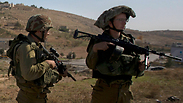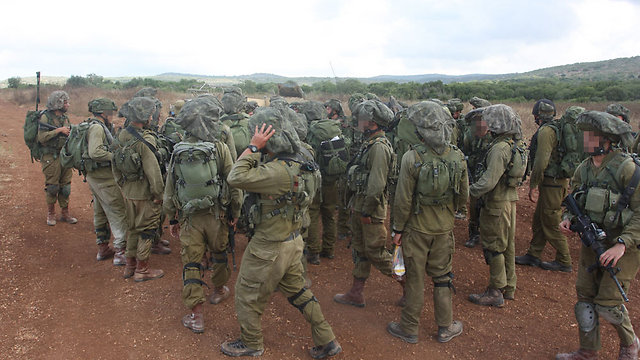
The way in which the IDF calculates payments for its soldiers has finally been revealed - and not only is the sum below what petitioners say is their cost of living, it also shows that combat troops receive double the amount of their non-combat comrades.
During a Supreme Court hearing two months ago on a petition demanding an increase in salaries for drafted soldiers, the panel of judges criticized the state's argument that soldiers' wages are actually an allowance, and therefore there was no need to define for what purposes it is allocated.
The judges called the state to establish clear criteria for the calculation of the allowance, giving it 60 days to respond, ahead of a final court decision. On Sunday, the state told the court that it had "formulated clear criteria for the living allowance being paid to conscripts."
Defining the criteria, the state argues that this is not a salary, reflecting the consistent view of the state since its creation that military service is a free service imposed on citizens, and the allowance is designed to meet the needs of the soldiers.
- Battle for soldiers' pay reaches Supreme Court
- Israel's impoverished army
- IDF troops want pay increase - to minimum wage
This living allowance is based on three areas of need:
1. Essential needs. These are fully met by the IDF and include three meals a day for soldiers on their bases, medical care, transportation from home to base and travel within the demands of the job, "uniforms, including rank insignia, beret, badges, belts, shoes that can be polished using shoe polish found in the unit."
2. "Other basic personal" needs and "welfare and recreation" needs. Both of these are met in the living allowance paid to soldiers, which is widely referred to as wages.
According to the state and the army, "other basic personal" needs of a soldier refers to "underwear, hygiene products and communication." The IDF calculates the costs for these items by the prices in the shops on various military bases. The army believes that each soldier gets an equal amount for these needs, regardless of their role in the IDF.
According to the criteria, every soldier needs NIS 80 per month to buy undergarments (underwear, undershirts, socks, towels), NIS 60 for a cell phone, and NIS 140 for hygiene products (razors, soap, tampons etc). In total, this comes to NIS 280, but this money apparently can be used for other purchases, depending on the needs of the individual soldier.
3. Allowance according to service. Aside from the NIS 260 granted to every conscripted soldier and the NIS 280 for "essential needs", there is also an allowance granted in accordance with the style of service. Combat troops receive an extra NIS 540, combat support troops receive NIS 240, and non-combat soldiers do not receive anything.
Thus, combat soldiers receive NIS 1,080 per month, combat support troops NIS 780, and non-combat soldiers NIS 540.
The state maintains that soldiers' allowances will continue to be updated annually according to the Consumer Price Index in addition, a decision has been taken to review the amount every five years "in light of the trends and developments that occur in society."
In its response, the state is seeking to counter a 2012 petition filed by attorney Amnon Lorch on behalf of his three children - Ariel, Shani and Amir - at least one of whom was a soldier when it was submitted.
The petition argues that the living allowance was intended, according to an IDF definition, "to allow conscripted soldiers to meet their basic needs, but in practice it is far from sufficient, and discriminates between those who serve and those who do not."
The petition included a request to update the allowance in line with increases in the CPI, a move adopted by the defense minister in January 2014, which has seen a 23-percent rise in the amount given to soldiers. At the same time, the Defense Ministry announced a 25-percent increase in the living allowance, bringing it in line with the sum allocated to national service volunteers.
Despite this income increase, the petitioners argue that the average monthly expenditure by troops, without any subsidies courtesy of their parents' credit cards, comes to about NIS 1,200. Because there are soldiers who earn less than half of that, the petition says, it is necessary to provide all soldiers with a comparative amount.

















